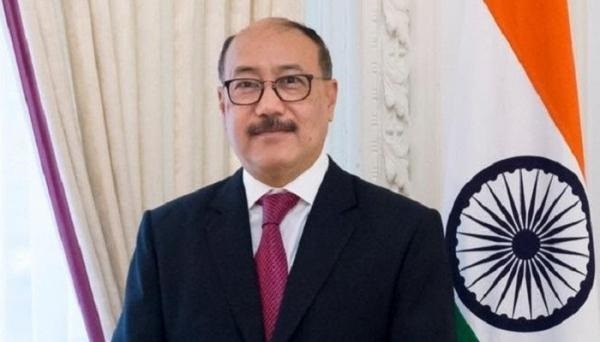Dhaka, (Samajweekly) Indian Foreign Secretary Harsh Vardhan Shringla has stressed on the importance of nurturing and upholding the spirit of the 1971 Liberation War, especially at a time when radical and anti-liberation forces are trying to destabilise in the region for their own interests.
Shringla said the two-way trade in the recent past has witnessed a quantum jump with exports from Bangladesh, for the first time, expected to cross $2 billion this year.
In this regard, he said early conclusion of a Comprehensive Economic Cooperation Agreement is vital to enhancing this momentum in trade.
He also called for concerted focus on connectivity between the two countries.
“We have made some progress here but there is a need to make more effective and sustained efforts,” he said.
He cited some of the important projects, including the Maitri Power Project in Khulna and the India Bangladesh Friendship Pipeline project, which are expected to get commissioned this year.
He said India and Bangladesh are now working on finalising agreements for other rivers and exchanging best practices in the areas of river embankments, addressing the salinity of rivers.
He said this during an interaction with the visiting Bangladesh delegation led by Md Shariar Alam, the State Minister for Foreign Affairs of Bangladesh on Monday at the 10th India-Bangladesh Friendship Dialogue organised by the India Foundation in Shimla.
Awami League MPs and central leaders were also present there.
Shringla said: “India and Bangladesh share 54 rivers which are part of our shared resources and responsibilities. The historic accord on Ganga water sharing has stood the test of time. We are now working on finalizing agreements for other rivers and exchanging best practices in the areas of river embankments, addressing salinity of rivers.”
Pointing out that the impact of climate change is felt in both India and Bangladesh, he called for more comprehensive cooperation in water conservation, fisheries, flood management, and pollution in rivers is required.
“Greater synergies in climate action, preserving shared natural heritage such as Sundarbans, etc. are also required.”
He also stressed the need for effective management of the border to facilitate economic linkages and people-to-people contact.
“We need to work closely to strengthen border infrastructure to ensure smooth transit of goods and people while ensuring that illegal activities are kept under check. An example of this approach is our objective of establishing additional border haats.”
He said India has used the power of technology as an enabler for people in a range of areas such as banking and financing and commerce and education. The joint initiative to establish IT parks in 12 districts of Bangladesh is a positive step in that direction. He looks forward to having greater bilateral cooperation in this area.
Shringla said he sees great merit in having more dialogues and exchanges between academia, think tanks, media and parliamentarians to further broaden and deepen this relationship.
In the last ten years, he said the cooperation between India and Bangladesh in the power and energy sectors has been mutually beneficial. “We are working towards arrangements for ensuring sub-regional cooperation in the power sector.”
He also said the vibrant people-to-people ties are key to India-Bangladesh relations. India has started rolling out the 1,000 Subarna Jayanti Scholarships announced by the Indian Prime Minister during his visit to Bangladesh in 2021.
“This will offer several opportunities to students from Bangladesh for studying in prestigious institutions in India. At the same time, we have a number of Indian nationals studying in Bangladesh.”
Shringla said India remains committed to building the momentum of regional cooperation under the BIMSTEC Framework. It can be an important vehicle for enhancing economic cooperation, development, and connectivity in the region. He said India is looking forward to the next BIMSTEC Summit.









